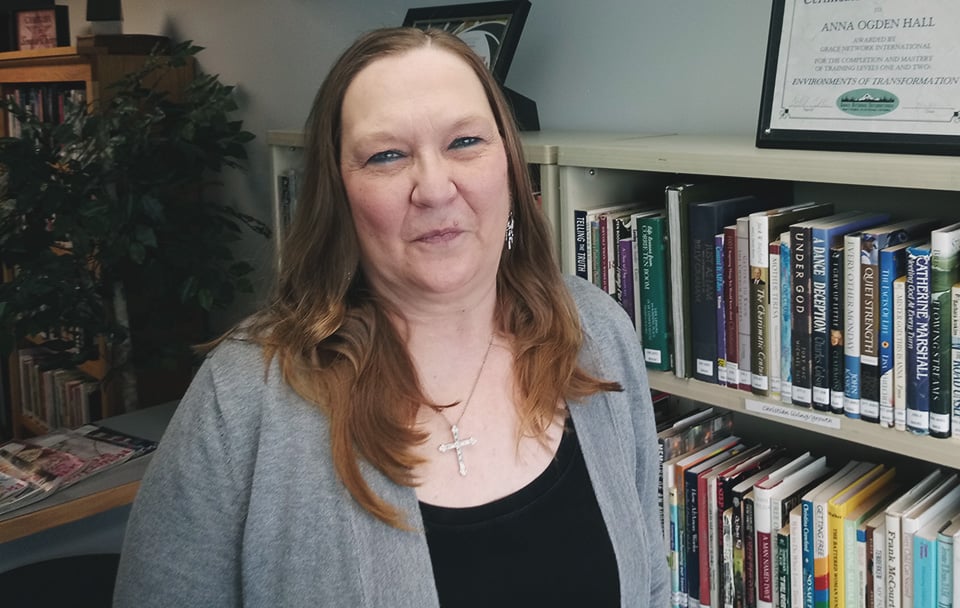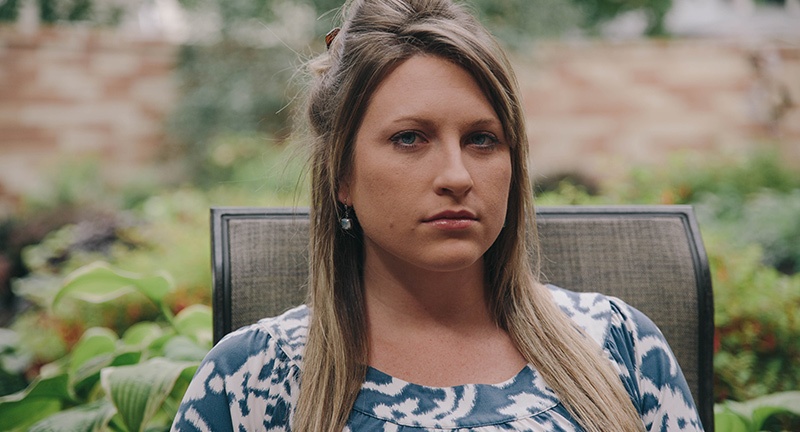2 min read
Gospel-Centered from the Start
“Let us hold unswervingly to the hope we profess, for He Who promised is faithful…Jesus Christ is the same yesterday, today, and forever.” (Hebrews...
3 min read
 Barbara Comito, former marketing director
:
March 2, 2017
Barbara Comito, former marketing director
:
March 2, 2017
Editor’s note: Recently we’ve been talking about mental struggles on the Impact Blog. From insomnia to trauma and addiction, there are many struggles that can’t be seen externally but still pose problems for those who suffer from them. For some, mental illness can lead to broken relationships, lost jobs and homelessness. Millions of people, however, manage their struggle from day to day while others have no idea what’s going on inside.
By Barbara Comito, Director of Marketing
“Sometimes anxiety feels like the world is ending and I can’t tell anybody. Sometimes it’s more like that feeling when your foot is just waking from being asleep and it’s not exactly painful but intensely uncomfortable and there’s nothing you can do to make it better, but mostly it’s like I drank a full pot of coffee on an empty stomach and am on a road trip: so much energy without an outlet, no escape, hopeless, helpless, powerless, just wanting everything to stop.” - Nora
.jpg?width=800&name=IMG_1096%20(1).jpg)
Nora and Izzy are my daughters. Both struggle with anxiety. Both are being treated professionally and both currently have their anxiety under control, but that has not always been the case.
From an outsider’s perspective, this might seem hard to understand. Honestly, from a mother’s perspective, it is hard to understand. I may be biased, but I think they’re beautiful. They both excelled at school with high school GPAs of 3.8 or 3.9. They come from a reasonably stable, two-parent home. They grew up in the church. We ate dinner as a family, went camping, read books together as a family. They went to youth group, social gatherings, had friends. They are friendly, courteous, respectful. What could possibly be the problem?
“I just feel like too much and not enough, like everything is my fault and someone is punching me in the chest but from the inside out but also like I’m being ridiculous but also like I just really need to see the ocean.” – Izzy

According to the National Alliance on Mental Illness website, “Anxiety disorders are the most common mental health concern in the United States. An estimated 40 million adults in the U.S., or 18%, have an anxiety disorder.”
Everyone feels anxious in certain settings – public speaking, first dates, job interviews, etc. Everyone worries from time to time. Those feelings are well within the range of normal. For someone with an anxiety disorder, however, anxiety can intensify into panic and worry can become an ever-present monster.
“Before I started seeing a therapist,” Nora said, “I thought that’s what it was to be an introvert – quiet, not liking crowds.” But as a sophomore in college, she started skipping class on a regular basis. “My brain was so busy I couldn’t focus. There was just this intense feeling of being overwhelmed. I was always cancelling plans. They sounded good in the moment, but then I couldn’t follow through. You’re oddly self-absorbed but, at the same time, hoping no one is noticing you. I think that’s the biggest thing – this false thinking that everyone is judging you.”
Izzy said she has less difficulty actually being in social situations. Her struggle comes afterward. “I think, ‘Oh my goodness, I was too loud and too much and everyone’s talking about me and how annoying I am.’ ”
When she has a healthy perspective of herself, she said, she just takes off the “too”s. “I am loud and goofy sometimes and some people can find that annoying, but I realize I wouldn’t be me if I was quiet and docile.”
Nora’s anxiety is exacerbated by insomnia, which makes it even more difficult to think straight. “I can’t sleep because how can I ever get it all done, but not sleeping makes me more anxious.”
Izzy’s anxiety can lead to depression and sleeping too much. “I feel stressed out, so I sleep, but then I sleep too much which makes me feel like a loser, so I feel more stressed out, so I sleep…”
Both girls saw their anxiety as a dangerous cycle. “Having anxiety makes you insecure and uncomfortable with yourself, and the more uncomfortable you are with yourself, the more anxious you are,” Nora said.
The combination of therapy and medication has enabled them to get their anxiety under control.

“I am capable of calming myself,” Nora said. “I’m still not a big fan of crowds, but I enjoy one-on-one relationships and small groups. I’m comfortable with who I am and what I’m doing.”
Izzy said she knows she needs to surround herself with people who will tell her the truth about who she is and how God sees her. “Sometimes when I start to feel anxious, I repeat the prayer over and over, ‘The Lord bless you and keep you. The Lord make his face to shine upon you and give you peace.’ ”
Izzy and Nora offer suggestions on what is helpful and what is not for people struggling with anxiety:
Unhelpful
Helpful
As Izzy and Nora said, sometimes the best gift you can offer is an encouraging word or a reminder of our identity in Christ. You can click below to print a greeting card to send to someone you know is struggling, or even to someone who seems not to be!

2 min read
“Let us hold unswervingly to the hope we profess, for He Who promised is faithful…Jesus Christ is the same yesterday, today, and forever.” (Hebrews...

9 min read
To celebrate 75 years of serving the Inland Northwest, we are spending the year remembering our history and the faithfulness that built us and...

2 min read
In 2026, Union Gospel Mission Inland Northwest is approaching our 75th Anniversary! This is a milestone that invites gratitude and reflection, and...

Patty’s a self-described alcoholic. But sobriety isn’t what her recovery is all about. It’s about finding a new way after long-held habits and ways...

By Christa Inouye, Youth Outreach - “Hey bud, what’s going on? Do you want to join the others in the group game?” At UGM Camp, this is a frequently...

I came to Anna Ogden Hall in May 2017, just so broken. I didn’t think I could get more broken. I was like no smile at all. I would cry all the time...